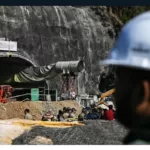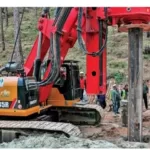In the aftermath of the Rajasthan Assembly polls held on November 25, the state recorded a commendable voter turnout of 75.45%, surpassing the figure from the 2018 elections by a marginal percentage. The 2018 elections had witnessed a turnout of 74.71%.
Of particular significance is the demographic breakdown, revealing that more women exercised their voting rights compared to men in the state assembly polls. Women accounted for 74.72% of the total voter turnout, while men trailed slightly at 74.53%.
In the previous 2018 elections, 74.75% of men and 74.67% of female voters had participated, resulting in an overall turnout of 74.71%.
The voting process transpired across more than 51,000 polling booths in 199 out of the 200 assembly constituencies in the state.
Both major political contenders, the Bharatiya Janata Party (BJP) and the Congress, strategically targeted women voters in their manifestos. Rajasthan Chief Minister Ashok Gehlot, spearheading the Congress campaign, announced the ‘Grah Laxmi Guarantee,’ promising an annual monetary assistance of Rs 10,000 to the woman head of a family if the Congress secures re-election. This financial aid will be credited in two or three installments into the accounts of eligible women.
On the BJP front, substantial incentives for women were outlined in their promises, including free scooters for meritorious girl children, saving bonds, a Special Investigation Team (SIT) probe into corruption cases, and the establishment of women police stations in every district. To address women’s safety concerns, the BJP vowed to implement Anti-Romeo Squads in each district, tasked with patrolling public spaces and taking action against eve-teasers and harassers.
The Rajasthan Assembly elections were marked by a fierce competition between the Congress, aiming to break the trend of the ruling party being ousted every five years, and the BJP, eyeing a return to power ahead of the upcoming Lok Sabha polls next year.
Key political figures from both parties, including Chief Minister Ashok Gehlot, former Chief Minister Vasundhara Raje, and others, contested in the elections, making it a pivotal contest with 1,862 candidates across 199 seats. As the electoral landscape unfolds, the results are anticipated to shape the political trajectory of Rajasthan in the coming years.







